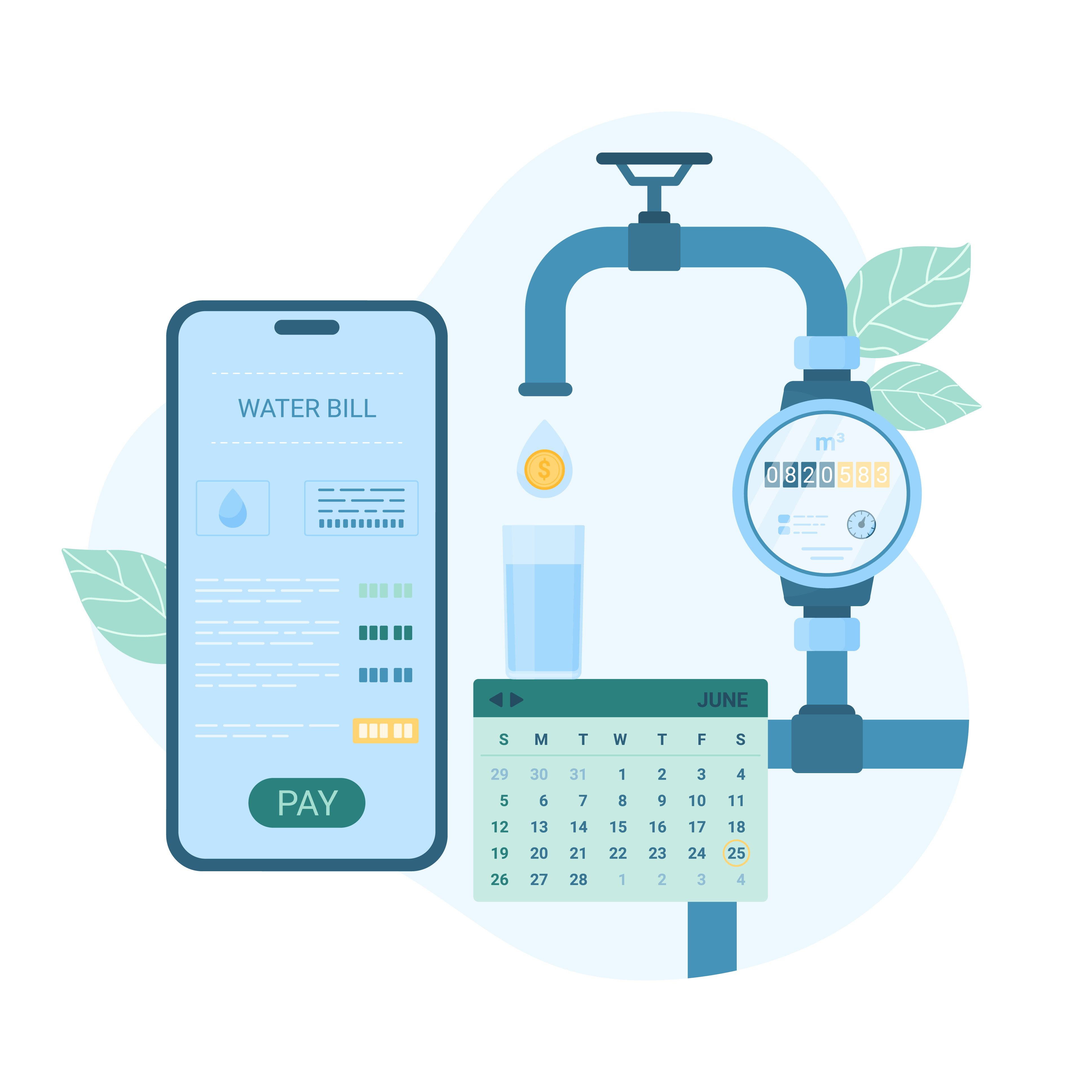The deluge of rainfall across the UK which has made the winter of 2023/2024 one of the wettest on record, might seem contradictory to concerns about water shortages. However, despite the abundant rainfall we still have a looming water deficit that demands attention and action.
According to the Met Office, the winter of 2023/2024 has been the eighth wettest on record in the UK, with the south of England experiencing its wettest February since 1836, when the Met office officially started collecting data. With 1,695 mm of rain falling in the UK from October 2022 to March 2024, it’s not surprising that many people across the country will not be anticipating water shortages any time soon.
Unfortunately, that’s not the case. In the blog we take a look at why the UK is still experiencing water shortages and how water companies can prepare customers to take the action necessary to help preserve our precious water supplies.
The water paradox
Climate change and the erratic behavior of the jet stream have significantly contributed to the excessive rainfall we have experienced this winter. Unfortunately the sheer volume of rain we’ve received doesn’t translate into an abundance of available water.
At the end of March the Environment Agency released a report that predicts a growing shortfall of water in coming years, leading to a deficit of almost 5bn litres of water a day by 2050. This is more than a third of the 14bn litres of water currently put into public water supply.
Why is there water shortage when we have experienced so much rain? Unfortunately the water that pelts the UK for half the year is not being stored properly. There have been no new major reservoirs built in the past three decades and rivers have been engineered to move water quickly so it runs into towns and cities. At the same time, the sea and many wetlands have been drained and farmed or built upon. The outcome of which is floods in winter followed by water shortages in the summer months.
What needs to be done?
Drought events are likely to become more severe as our summers become hotter, the UK’s population continues to rise and we experience more flooding episodes. It’s time that drastic action is taken to help educate the public as to the situation, and that means water suppliers need to improve their customer engagement and create an awareness programme that:
- Encourage water conservation: Educating consumers about reducing Per Capita Consumption (PCC) is paramount. Small changes in individual behavior can collectively yield significant water savings.
- Promote smart meter adoption: Smart meters offer tangible benefits, including enhanced awareness of water usage and the detection of leaks. Increasing smart meter installations can substantially contribute to water conservation efforts.
- Improve leak detection and reduction: Implementing strategies to identify and rectify leaks is essential. Each water company should aim to meet ambitious water reduction targets, prioritising leak prevention and management.
- Raise drought awareness: Engaging consumers in understanding the severity of water shortages and the necessity for efficient water usage, including potential restrictions like Temporary Use Bans (TUBS) or Non-Essential Use Bans (NEUBs), is crucial.
Advizzo’s role in driving change
Advizzo harnesses the power of behavioural science to create unique customer engagement solutions that are proven to help water and energy customers to better understand their usage and motivate them to make changes – whether that’s to reduce their consumption or accept a smart meter. And we’ve been doing it successfully for over eight years working with water suppliers including South East Water, Anglian Water, Yorkshire Water, Portsmouth Water, Southern Water and Severn Trent.
How we increase engagement
Our SaaS solutions use behavioural, specifically the nudge behavioural science theory, combined with data science to trigger customer engagement. We do this through personalised and timely behavioural based messages, sent via multiple channels, that are designed to motivate behavioural changes. Find out more about the nudge theory in our blog How a Nudge Can Help Your Customers Save Energy and Water.
By applying principles of behavioral science, we deliver tailored messages that resonate with consumers, prompting them to take proactive steps towards water conservation. Highlighting consumption comparisons with neighbours and educating customers about the benefits of smart meter adoption serve as very persuasive tools in driving behavioral change.
You can read more about our customer engagement solutions and how they can help the UK with water shortages in our blog Helping the UK to Save Water in a Time of Severe Water Shortage.
As the specter of water scarcity looms larger, it’s imperative for water suppliers to proactively address the challenges posed by climate change and the UK’s aging and inadequate infrastructure. By harnessing the power of behavioral science and fostering collaborative efforts between water suppliers and consumers, together we can help safeguard our precious water resources.
What’s your drought plan? It’s time to embrace proactive measures. Let us work with you to mitigate water shortages through improved customer engagement. Get in touch today to book your free demo.
